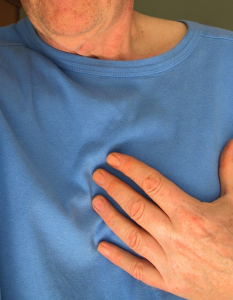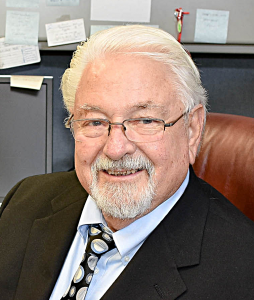Heart disease. As of this writing (January 2024), there are clear differences in the documentation of the clinical effects of the ubiquinone form of Coenzyme Q10 and the ubiquinol form on heart disease. Clear differences in favor of supplementation with the ubiquinone form of Coenzyme Q10.

The World Health Organization has named cardiovascular disease as the leading cause of death worldwide. Heart failure has developed into a global pandemic that leads to millions of deaths annually. Research clearly shows a beneficial effect of supplementation with the ubiquinone form of Coenzyme Q10 for the prevention and treatment of patients with heart failure.
Based on an extensive review of the biomedical literature, the pharmacologists Fladerer and Grollitsch have concluded as follows [2023]:
- CoQ10 supplementation in the ubiquinone form alone and in combination with selenium has reduced cardiovascular death in patients with heart failure. There is no documentation for the same effect with the ubiquinol form.
- The effective daily dosages tested in clinical trials demonstrating cardiovascular benefits have been much lower in the ubiquinone studies than in the ubiquinol studies.
- Only in the ubiquinone studies have researchers observed positive long-term effects. In the ubiquinone studies, reduced cardiovascular mortality has persisted as long as 12 years after the initiation of ubiquinone and selenium supplementation.
Lack of Documentation for Ubiquinol Supplementation
Given the evidence of the published literature about CoQ10 supplementation and heart disease, Fladerer and Grollitsch are recommending the use of ubiquinone CoQ10 supplements instead of ubiquinol supplements [2023].
At the present time, there is a lack of relevant clinical trial evidence associating ubiquinol supplementation with cardiovascular benefits [Fladerer & Grollitsch 2023]. Moreover, there are several misleading marketing claims for ubiquinol supplementation that have been refuted by the CoQ10 researcher Dr. William Judy [2021].
Differences Between Ubiquinone and Ubiquinol
Fladerer and Grollitsch explain that Coenzyme Q10 molecules are redox molecules that are present in the cells and tissues in two states, both of which are bio-active:
- the oxidized state ubiquinone (sometimes designated as CoQ10)
- the reduced state ubiquinol (sometimes designated as CoQH2)
Both forms of Coenzyme Q10 are important for human health.
- The ubiquinone form is essential for cellular ATP energy generation.
- The ubiquinol form is an important lipid-soluble antioxidant that prevents lipid peroxidation in the blood circulation.

Lab studies and large dog studies conducted by Dr. William Judy have shown that the ubiquinol form of Coenzyme Q10 can be unstable.
Fladerer and Grollitsch note that the ubiquinol form can be very unstable and, under normal circumstances, will be oxidized to ubiquinone. Furthermore, the ingested ubiquinol needs to be oxidized to ubiquinone before it can be absorbed in the small intestines [Judy 2021].
In 2020, Mantle and Dybring reviewed the available CoQ10 bioavailability literature and came to the following conclusions:
- Ubiquinone supplementation will result in significant increases in blood ubiquinol concentrations, the blood circulation being the place where there is most need for Coenzyme Q10 in its antioxidant form.
- There are at least five enzyme systems in the human body that convert ubiquinone to ubiquinol as needed.
- The bioavailability of ubiquinone and ubiquinol supplements depends upon the manufacturer’s use of proper CoQ10 crystal dissolution processes and on the manufacturer’s choice and composition of carrier oils.
In this respect, Professor Lopez-Lluch et al have shown that a well-formulated ubiquinone supplement will provide significantly better bioavailability than a competing ubiquinol supplement [Lopez-Lluch 2019].
Coenzyme Q10 and Cardiovascular Disease
Here is a summary of the ubiquinone and heart disease studies that impress Fladerer and Grollitsch [2023]:
- The Q-Symbio study: for two years, Mortensen et al [2014] administered 3 x 100 mg ubiquinone Coenzyme Q10 or matching placebos daily to 420 patients with chronic heart failure. The study outcomes showed significantly improved survival, reduced hospitalization time, and improved physical functioning with the ubiquinone supplementation.
- The KiSel-10 study: for four years, Alehagen et al [2013] administered 2 x 100 mg ubiquinone in combination with 200 mcg of an organic selenium preparation or matching placebos to 443 senior citizens, average age 78 years. The study outcomes showed significantly reduced cardiovascular mortality and improved heart function in the active treatment group. The beneficial heart health effects persisted through year 12 after the commencement of the ubiquinone + selenium supplementation. The researchers thought that the beneficial heart outcomes are due to the antioxidative and anti-inflammatory effects of the treatment [Alehagen 2018].
- The Morisco study: For one year, Morisco et al [1993] administered ubiquinone in a dosage of 2 mg/kg per day or placebo to 641 patients with congestive heart failure. The study outcomes showed that adding ubiquinone supplementation to conventional therapy significantly reduced the need for hospitalization and the incidence of serious complications in patients.
Note that the average age of the study participants in the three seminal studies summarized above contradicts the misleading claim that middle-aged and elderly people need ubiquinol supplements [Judy 2021]:
- Q-Symbio study: 63 years
- KiSel-10 study: 78 years
- Morisco study: 67 years
Conclusion: Ubiquinone With Better Heart Health Documentation
- Ubiquinone supplements delay or prevent the development of cardiovascular disease and reduce cardiovascular mortality [Alehagen 2013, 2018].
- Ubiquinone supplements improve the survival and symptoms of chronic heart failure [Mortensen 2014].
- No similar documentation exists for ubiquinol supplements [Fladerer & Grollitsch 2023].
Buyer beware: It is important to choose a ubiquinone CoQ10 supplement with documented absorption and bioavailability – not all CoQ10 supplements are well absorbed [Lopez-Lluch 2019].
Sources
Alehagen U, Johansson P, Björnstedt M, et al. Cardiovascular mortality and N-terminal-proBNP reduced after combined selenium and coenzyme Q10 supplementation: a 5-year prospective randomized double-blind placebo-controlled trial among elderly Swedish citizens. Int J Cardiol. 2013;167:1860–6.
Alehagen U, Aaseth J, Alexander J, et al. Still reduced cardiovascular mortality 12 years after supplementation with selenium and coenzyme Q10 for four years: a validation of previous 10-year follow-up results of a prospective randomized double-blind placebo-controlled trial in elderly. PLoS ONE. 2018;13:e0193120.
Judy WV. The instability of the lipid-soluble antioxidant ubiquinol: part 3–misleading marketing claims. Integr Med (Encinitas). 2021;20:24–8.
López-Lluch G, Del Pozo-Cruz J, Sánchez-Cuesta A, et al. Bioavailability of coenzyme Q10 supplements depends on carrier lipids and solubilization. Nutrition. 2019;57:133–40.
Morisco C, Trimarco B, Condorelli M. Effect of coenzyme Q10 therapy in patients with congestive heart failure: a long-term multicenter randomized study. Clin Investig. 1993;71:S134–6.
Mortensen SA, Rosenfeldt F, Kumar A, et al. The effect of coenzyme Q10 on morbidity and mortality in chronic heart failure: results from Q-SYMBIO: a randomized double-blind trial. JACC Heart Fail. 2014;2:641–9.
The information presented in this review article is not intended as medical advice and should not be used as such.









Leave A Comment